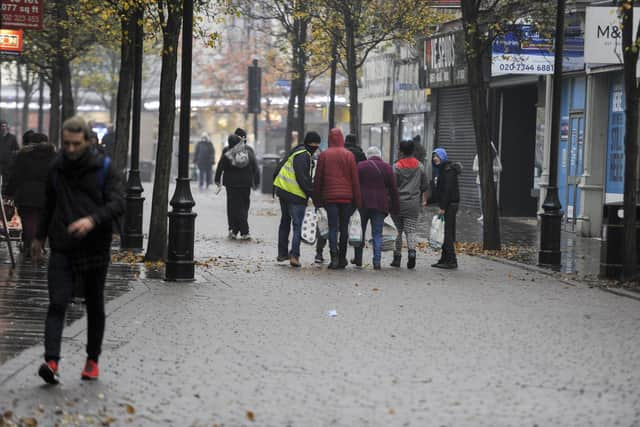More people in Doncaster are identifying as English than before the EU referendum
and live on Freeview channel 276
That’s according to the Office for National Statics Annual Population Survey, which asks a sample of local people how they would describe their national identity.
The survey shows 55 per cent of people in Doncaster identified as English in the year to June 2020, up from 48 per cent four years earlier, in the run-up to the EU referendum.
Advertisement
Hide AdAdvertisement
Hide AdBut Britishness is on the decline – 47 per cent said they were British, compared to 60 per cent in the year to June 2016.


In the survey, people can identify as British, English, Irish, Scottish, Welsh or “other”. Respondents can choose as many options as they think apply to them, so could choose English and British as dual identities.
The opposite was seen across England as a whole – while the proportion who felt they were British rose from 49 per cent to 56 per cent over the period, those opting for English dropped from 52 per cent to 47 per cent.
Professor John Denham, director of the Centre for English Identity and Politics, said the relative rise in British identity was in line with other recent surveys.
Advertisement
Hide AdAdvertisement
Hide Ad“It is not clear why this has happened, but one significant factor is likely to be age,” said Prof Denham, who runs the centre at the University of Southampton.
“It has been the case for some time that younger generations have been more likely than older residents to emphasise their British identity.”
He said there was a misconception that English identity had been on the rise in recent years, which was partly driven by Brexit.
“The myth came about because national identity became politically salient in a way it never had been before,” he added.
Advertisement
Hide AdAdvertisement
Hide Ad“Those who emphasised their English identity were much more likely to vote Leave, and those who emphasised Britishness were more likely to vote Remain.”
But he pointed out that other surveys show around eight in 10 people identify as both.
Sunder Katwala, director of the independent think tank British Future, agreed that the trend was partly driven by generational differences in attitudes.
